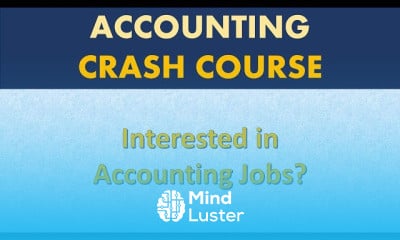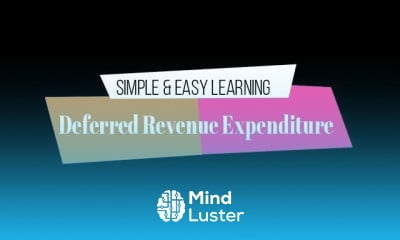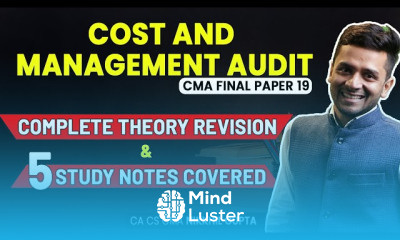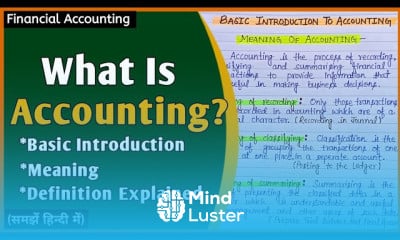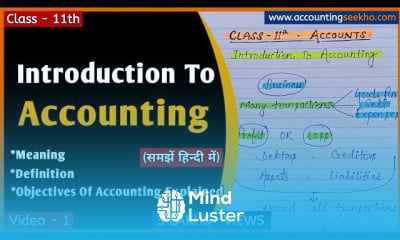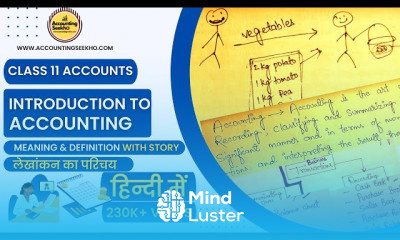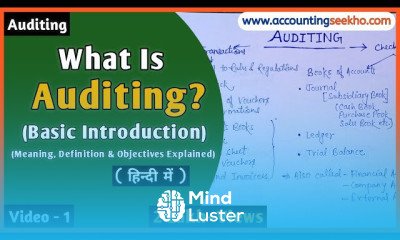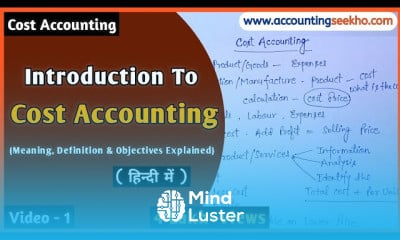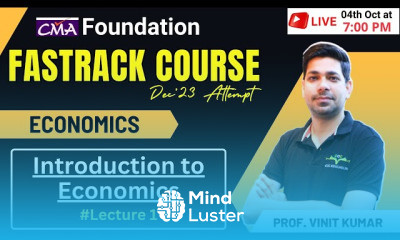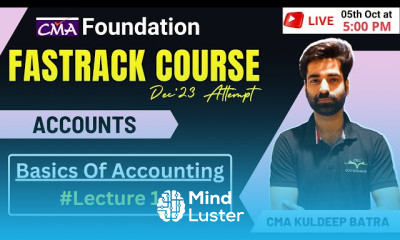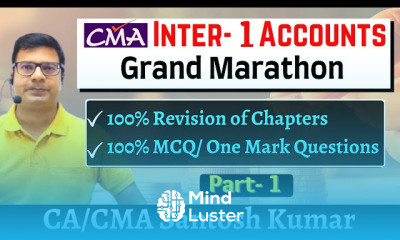Accounting for Bad Debts Doubtful Accounts Allowance Method
Share your inquiries now with community members
Click Here
Sign up Now
Lesson extensions
Lessons List | 10
Lesson
Comments
Related Courses in Accounting
Course Description
Financial accounting principles course,
in this course we will learn about the financial accounting principles that are essential for preparing and understanding financial statements. We will delve into fundamental concepts such as the accrual basis of accounting, revenue recognition, and the matching principle, which are crucial for accurate financial reporting. Students will gain insights into key accounting frameworks including Generally Accepted Accounting Principles (GAAP) and International Financial Reporting Standards (IFRS). The course will cover the preparation of the primary financial statements: the balance sheet, income statement, and cash flow statement. Through practical examples and exercises, students will develop the skills to analyze and interpret financial information, ensuring they can apply these principles effectively in various accounting contexts.
Trends
Learning English Speaking
MS Excel
Python programming language
Web Design for Beginners
Communication Skills
English Language
Photo Editing
Excel Course Basic to Advanced
Make AI for beginners
Formation efficace à l écoute de l
Cyber Security for Beginners | Edureka
Content Marketing
Python in Hindi
French
Every Photoshop
Artificial intelligence tools
English Grammar for Beginners
IELTS exam english
Ethical Hacking
Create a custom List in excel
Recent
Power BI Fundamentals
Make AI for beginners
Power BI
Power BI UI UX design roadmap
Artificial intelligence tools
Create a custom List in excel
Spatie laravel media library
Install laravel livewire
Install Laravel 8 on windows 10
Laravel 8 admin panel
Laravel statamic CMS website
Laravel URL shortener
Laravel 8 API
Laravel livewire employees management
Employees management application with laravel
Vue js 3 fundamentals
Laravel livewire business listing
Laravel inertiaJS movie app
Vue router 4
Create a movie website with laravel Livewire



